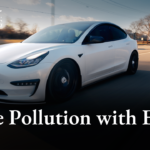The EPA authorized Chevron refinery to produce fuel out of discarded plastics, with the aim of contributing to a more eco-friendly climate change solution and providing petroleum alternatives.
However, Guardian and ProPublica obtained Records from the agency that revealed the production of one of these fuel types can release toxic air pollutants which could increase cancer risks for 1 in 4 people exposed to them over a lifetime.

The EPA says Chevron has not started making this fuel yet but according to The Guardian, The risk associated with this project is 250,000 times more than the amount the EPA division typically approves for any new chemical it authorizes.
The unfortunate reality of the situation is that lower-income and Black people in Pascagoula, Mississippi, are more likely to face increased cancer cases if this company goes through with its plan. This is due to the population living within three miles of the refinery that would produce the fuel.
Federal law requires EPA to come up with ways to minimize any potential health and environmental risks before approving new chemicals. When unsure, the EPA can order lab testing to clarify the potential health and environmental effects.
However, EPA did not do either of these in the case of chevron’s “Climate-friendly” fuel.
What are plastic based fuels?
At its most basic level, plastic-based fuel is the fuel that is created by the conversion of plastic waste into usable fuel.
This process, known as pyrolysis, involves heating the plastic materials in an anaerobic environment, for example in a vacuum, eliminating oxygen from the process.

Molecules in the plastic are broken down by the heat and recombined, resulting in oils, gases, and solid residues. These liquids and gases can then be used in a variety of products, such as biodiesel or motor fuel.
Main image: Jonathan Bachman / Reuters










